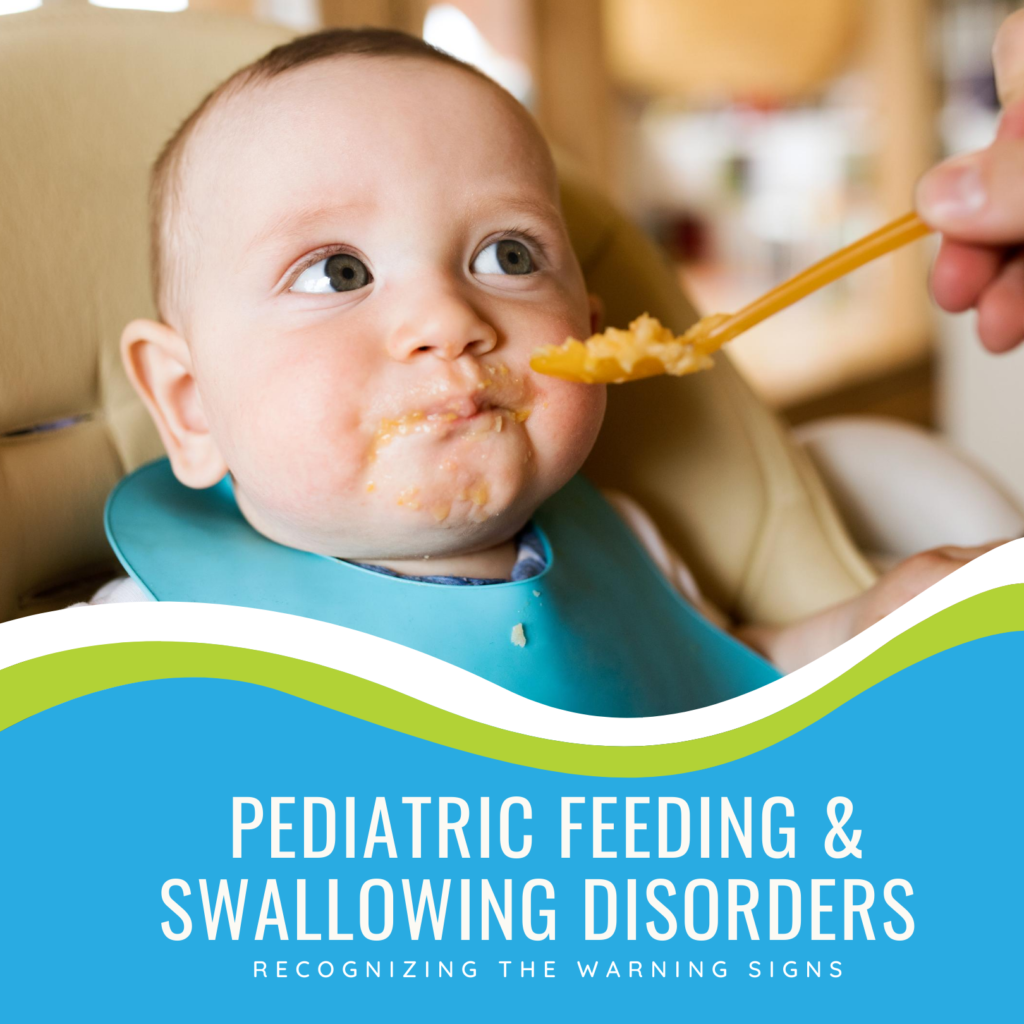Pediatric Feeding & Swallowing Disorders

Feeding your baby is one of the most important aspects of child care. When it does not work as you expect or is a stressful event, it can be of great concern. We are here to help!
Feeding skills in children actually start with sucking, then learning to eat solid foods and eventually drinking from a cup. As you transition between stages, it is normal that some trouble may occur at first, possibly with drinks spilling from their mouths, pushing food back, or gagging at new tastes/textures. This should improve with time and practice though. Children who continue to have difficulty with the before-mentioned, or eat only certain foods (picky eaters), or take a long time to eat may have a feeding disorder.
The following are signs of feeding and swallowing disorders:
- Arches her back or stiffens while feeding
- Cries or fusses while feeding
- Falls asleep when feeding
- Problems breastfeeding
- Difficulty breathing while eating and drinking
- Refuses to eat or drink
- Eats only certain textures, such as soft food or crunchy food
- Takes a long time to eat
- Problems chewing
- Coughs or gags during meals
- Drools a lot or has liquid come out her mouth or nose
- Gets stuffy during meals
- Gurgly, hoarse, or breathy voice during or after meals
- Spits up or throws up a lot
- Not gaining weight or growing
A feeding or swallowing disorder may result in dehydration or poor nutrition, aspiration (when food/liquid enters the airway), pneumonia or other lung infections. It may also lead to learning and social problems. Causes of feeding and swallowing disorders include nervous system disorders, reflux or stomach problems, prematurity/low birth weight, heart disease, cleft lip and/or palate, breathing problems, autism, head/neck problems, muscle weakness in face and neck, medication, sensory issues, and behavior problems.
With their extensive training and experience, Speech-Language Pathologists can help children with feeding and swallowing. Treatment can address strengthening of muscles in the mouth, improvement of sucking, learning how to breathe while sucking and swallowing (typically 0-3 months). A change in position while feeding for the child and/or the position you hold the child may be recommended. Treatment may also include addressing sensory issues (textures in the mouth or on the hands), trying new consistencies, textures, tastes, temperatures, and/or addressing behavior problems that impact feeding.
If you have noticed any of these signs in your child or are worried about their feeding or swallowing in any way, please feel free to call us! We can complete a free screening virtually or in person. We would love to help!
Monroe
West Monroe
Ruston
Shreveport
Monday-Friday
8am-5:30pm
Copyright © 2025 Melanie Massey Physical Therapy
